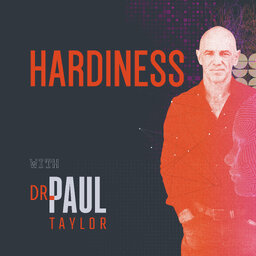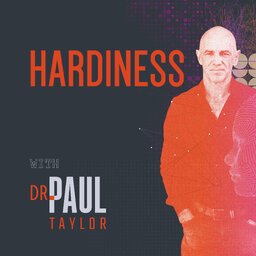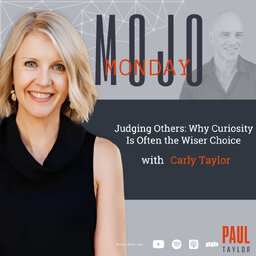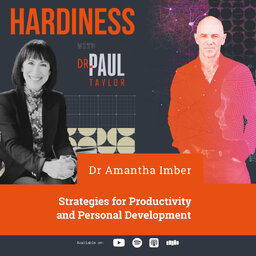Boost Productivity and Focus with Flow State Methods with Dr. Sue Jackson
In this engaging episode, we unlock the secrets of the 'flow state' with Dr. Sue Jackson, a renowned expert in performance psychology and bestselling author. Discover how this peak state of focus and productivity, often experienced by elite athletes and artists, can be harnessed by anyone to improve daily life, work, and even exam preparation. Dr. Jackson explains flow, its nine dimensions, and how attentional control plays a crucial role in accessing this optimal state. We will also discuss the personality types, professions most prone to experiencing flow, and learn the key differences between flow, 'being in the zone,' and deep work, along with why flow isn’t a constant state.
Packed with practical insights, this conversation offers actionable strategies to balance challenge and skill, overcome flow-blockers, and integrate flow into educational settings. Whether you're aiming to boost productivity, enhance learning, or find more joy in everyday activities, this episode provides a holistic guide to tapping into the power of flow.
Key Topics:
-
Flow State: Definition and Characteristics
-
The Nine Dimensions of Flow
-
Attentional Control and its Relationship to Flow
-
Flow State in Various Life Areas Beyond Sport
-
Personality Types and Professions Prone to Flow States
-
Differences Between Flow, 'Being in the Zone', and Deep Work
-
Integrating Flow into Educational Settings and Exam Preparation
Memorable Quotes:
-
“we take ourselves out of our comfort zone by stretching, uh, boundaries, maybe stretching the challenge a little bit higher than what we might be entirely comfortable with.”
-
“without that ability to pay attention to refocus attention, you know, flow is not gonna happen”
-
“it's about training our ability to be able to know where our attention is and to bring it back and again”
-
“the culmination of having these other eight factors all happening together is that we have what's known as an autotelic experience, which means. intrinsically rewarding or enjoyable”
-
“So if we can learn to trust ourselves in a situation that it's safe for us to remain in, unlike your example there, then we can shift from anxiety.”
-
“high level performance, it's very much about the trust. Yeah, whereas at the lower levels, it might be you simply don't have the skills and you've got to develop them.”
-
“if you're going to be involved in a task and you don't, your phone isn't part of that task, then having it on silent makes sense. Otherwise there will be distractions.”
-
“it's, uh, incorrect to, to sort of think that there's just a switch that we can turn on”
-
“we can experience flow in everyday life. And it comes down to that balance of challenges and skills”
Actionable Takeaways:
-
To achieve flow, engage in activities that stretch your abilities but are still within your capabilities.
-
Establish specific objectives for your tasks and find ways to get quick feedback on your progress to enhance your flow experience.
-
Develop your ability to focus and maintain concentration, as this is crucial for entering and staying in a flow state.
-
Learn to recognise when you're in flow and when negative self-talk or distractions are pulling you out of it.
-
Don't limit your flow experiences to sports or work; seek opportunities for flow in different aspects of your life, such as hobbies or creative pursuits.
-
Minimise distractions and establish conditions that support deep focus and engagement in your chosen activities.
-
Integrate flow principles into studying by breaking down revision into manageable chunks, setting clear goals, and creating a distraction-free study environment to enhance learning and exam preparation.
Resources Mentioned:
Connect with Dr. Sue Jackson:
Learn more about Dr Sue Jackson
Dr Sue Jackson on LinkedIn
Dr Sue Jackson on Facebook
Connect with Paul Taylor:
Learn more about Paul Taylor
Paul Taylor on LinkedIn
https://www.linkedin.com/in/paultaylor1971/
Paul Taylor on Instagram
Paul Taylor on YouTube
Support the Podcast:
If you found this episode valuable, please consider subscribing, rating, and leaving a review on your preferred podcast platform. Your support helps us reach more people with important conversations like this one.
Share this episode with someone who might benefit from hearing it—emotional eating is more common than we think, and this conversation could make a difference in someone's life
 Hardiness with Dr Paul Taylor
Hardiness with Dr Paul Taylor


